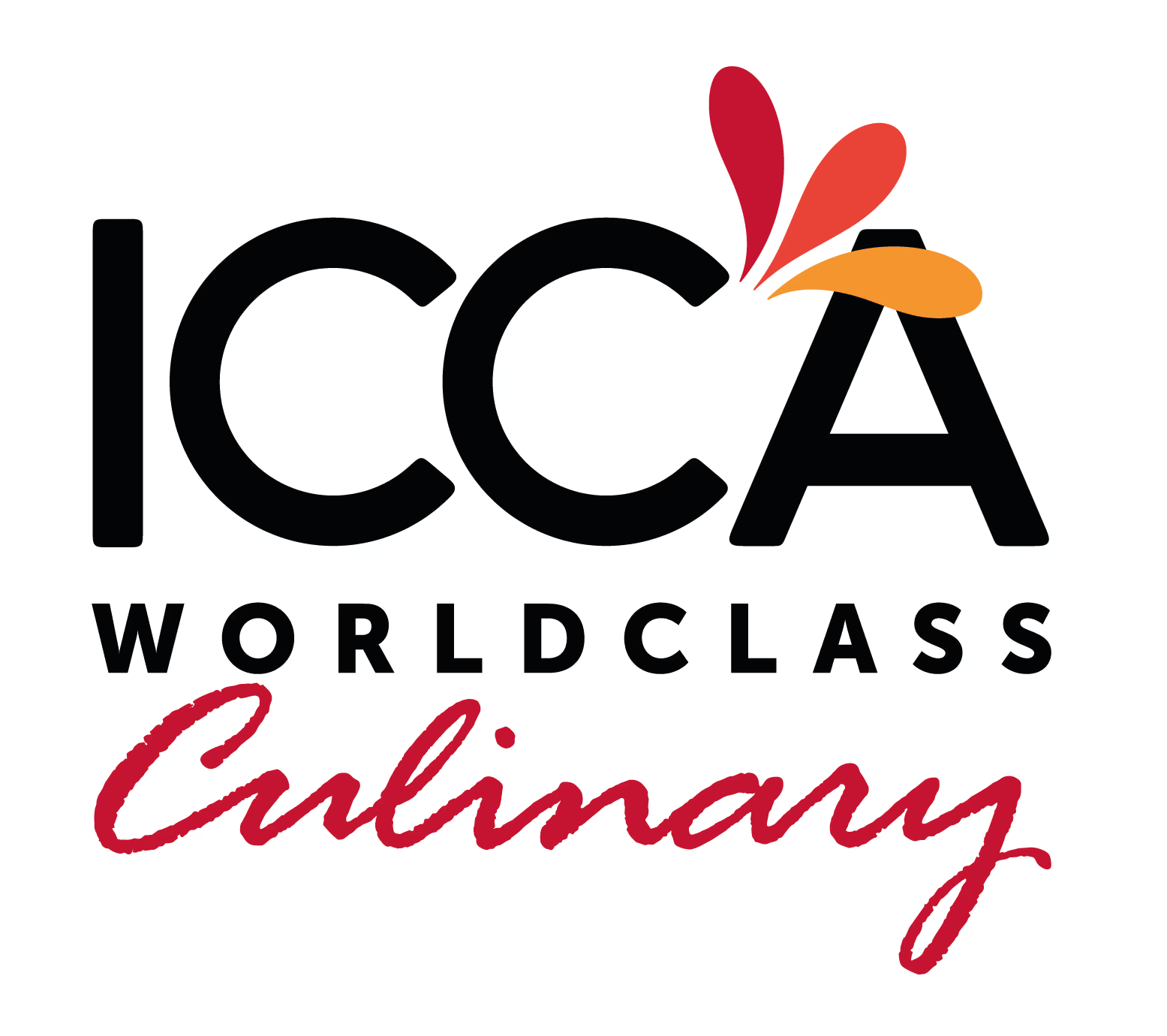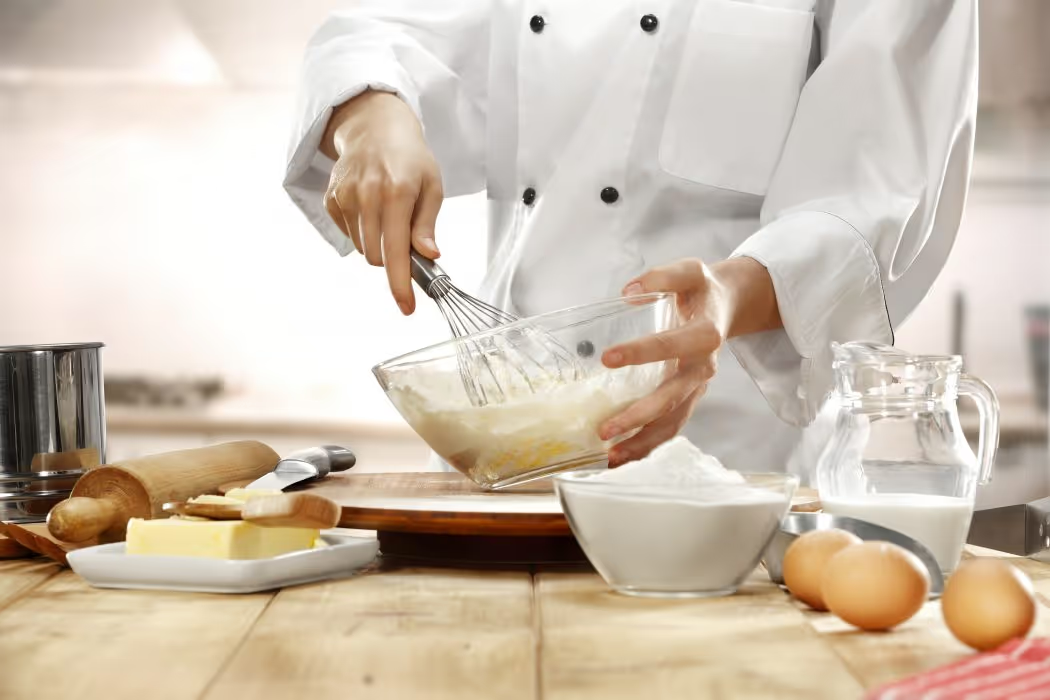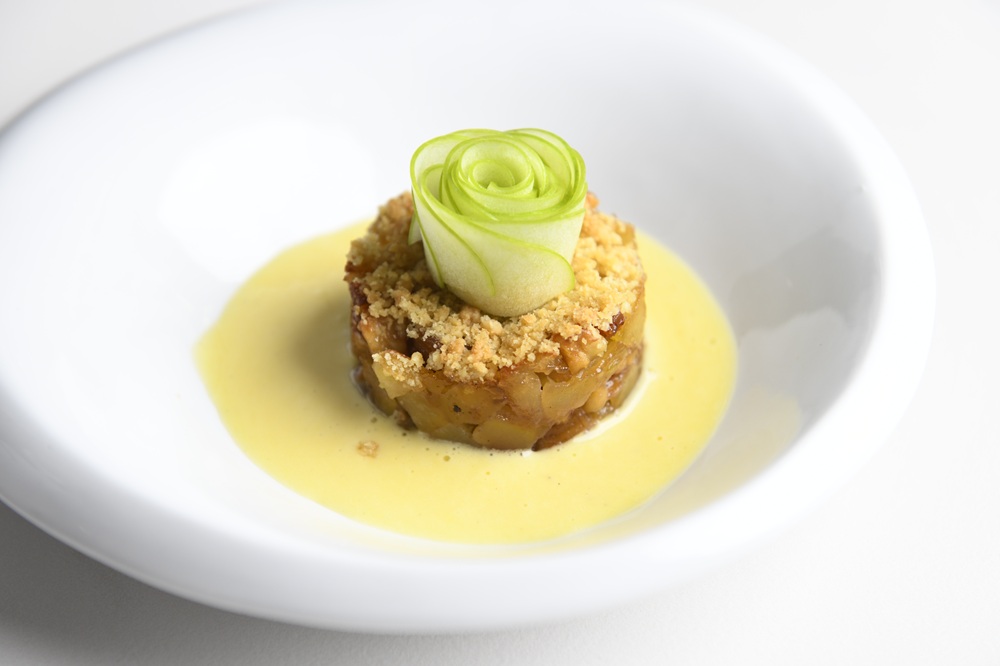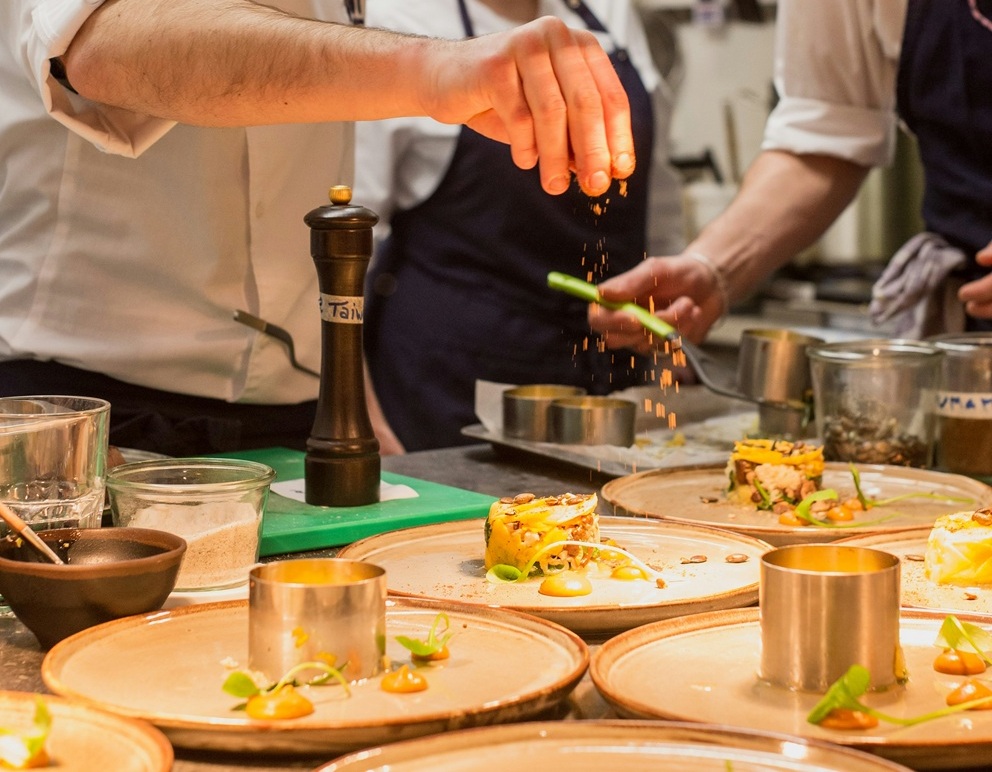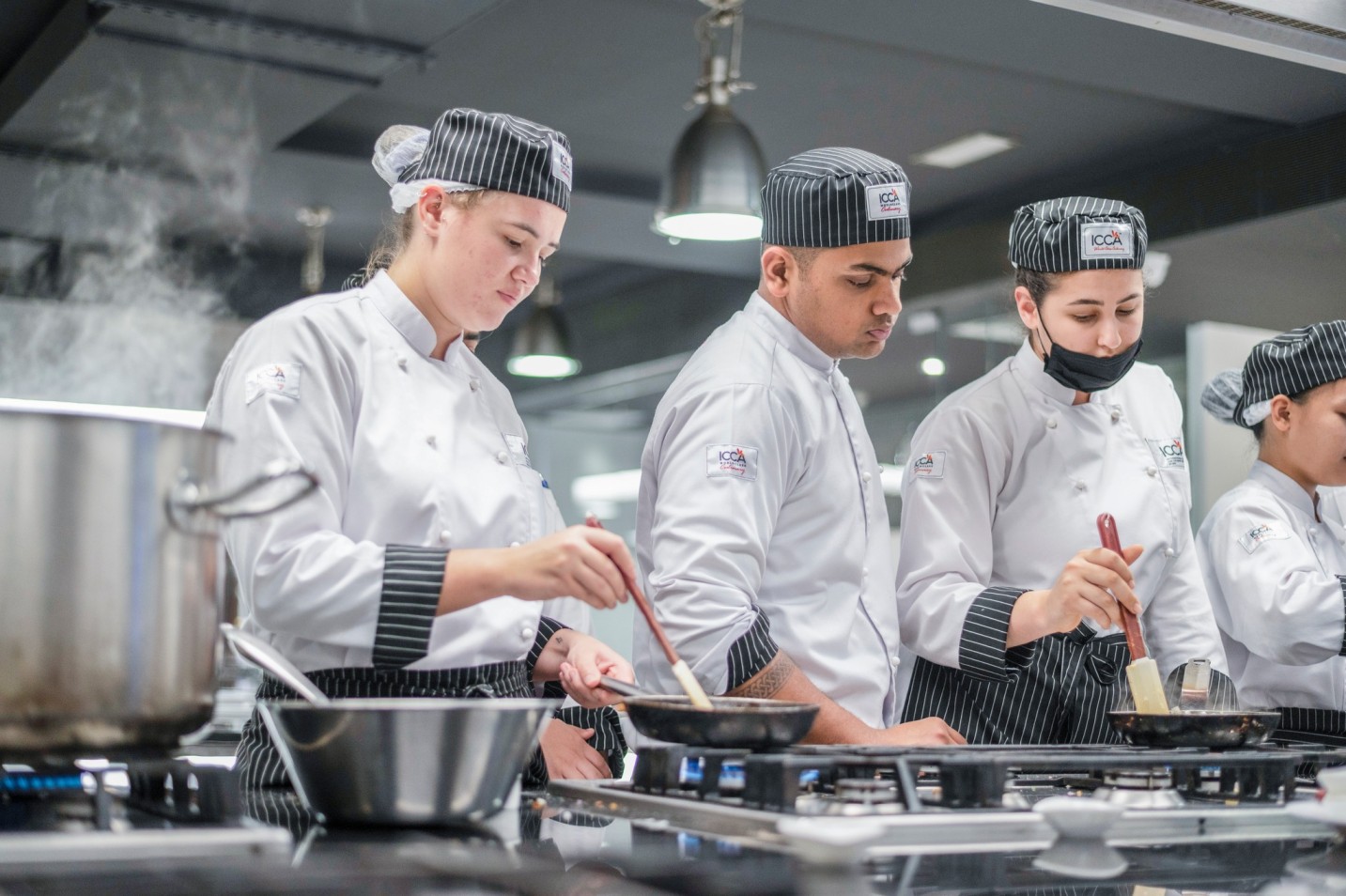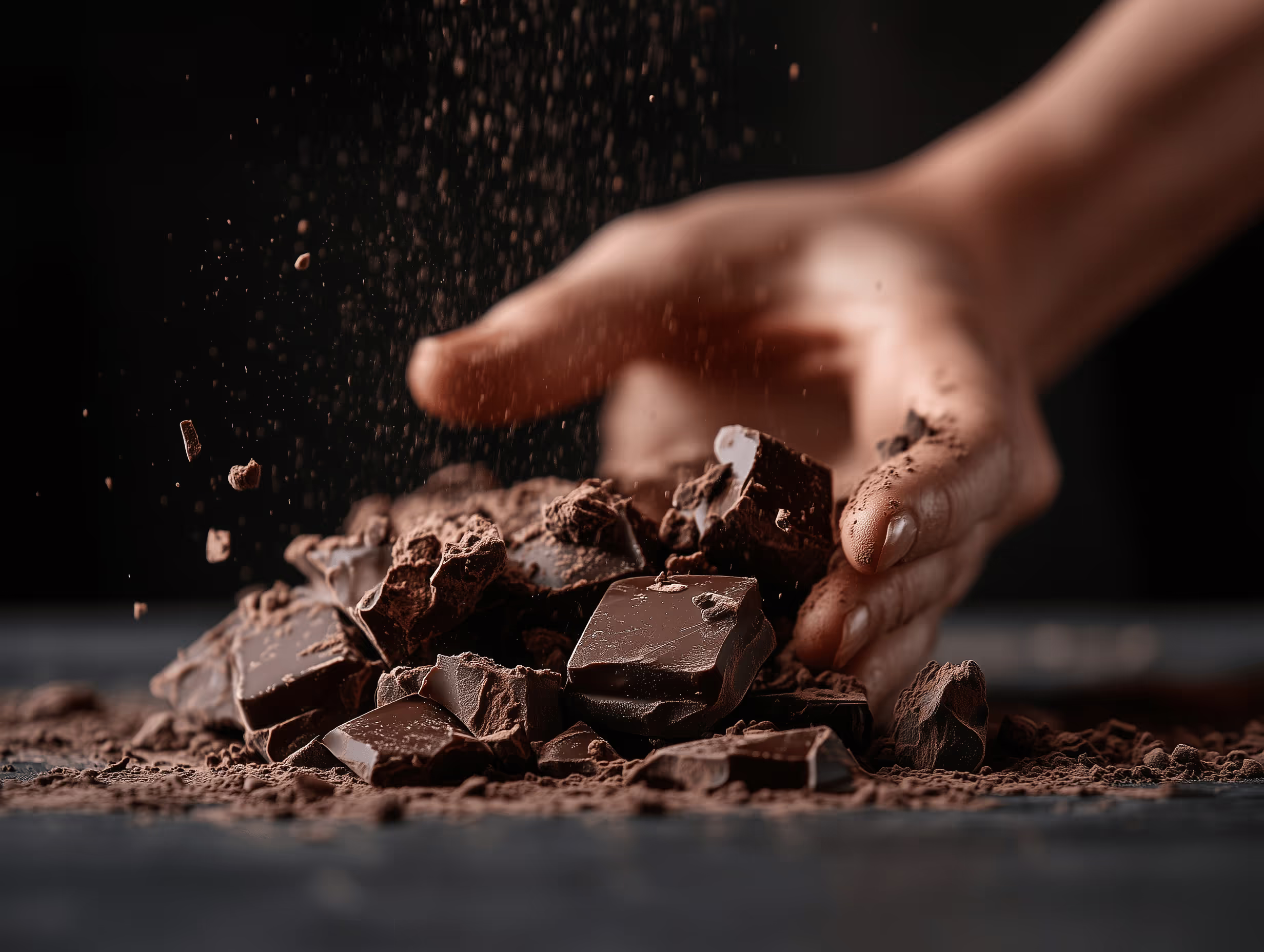Professional baking goes far beyond just following a recipe—it’s precision, technique, and consistency. Unlike home baking, where trial and error is fine, professional bakers must deliver perfection every time. The balance of creativity and scientific knowledge is crucial. Whether it’s perfect lamination in pastry or controlling fermentation in bread, professional baking is both an art and a science, requiring skill, equipment, and dedication.
Home Baking vs. Professional Baking: Key Differences
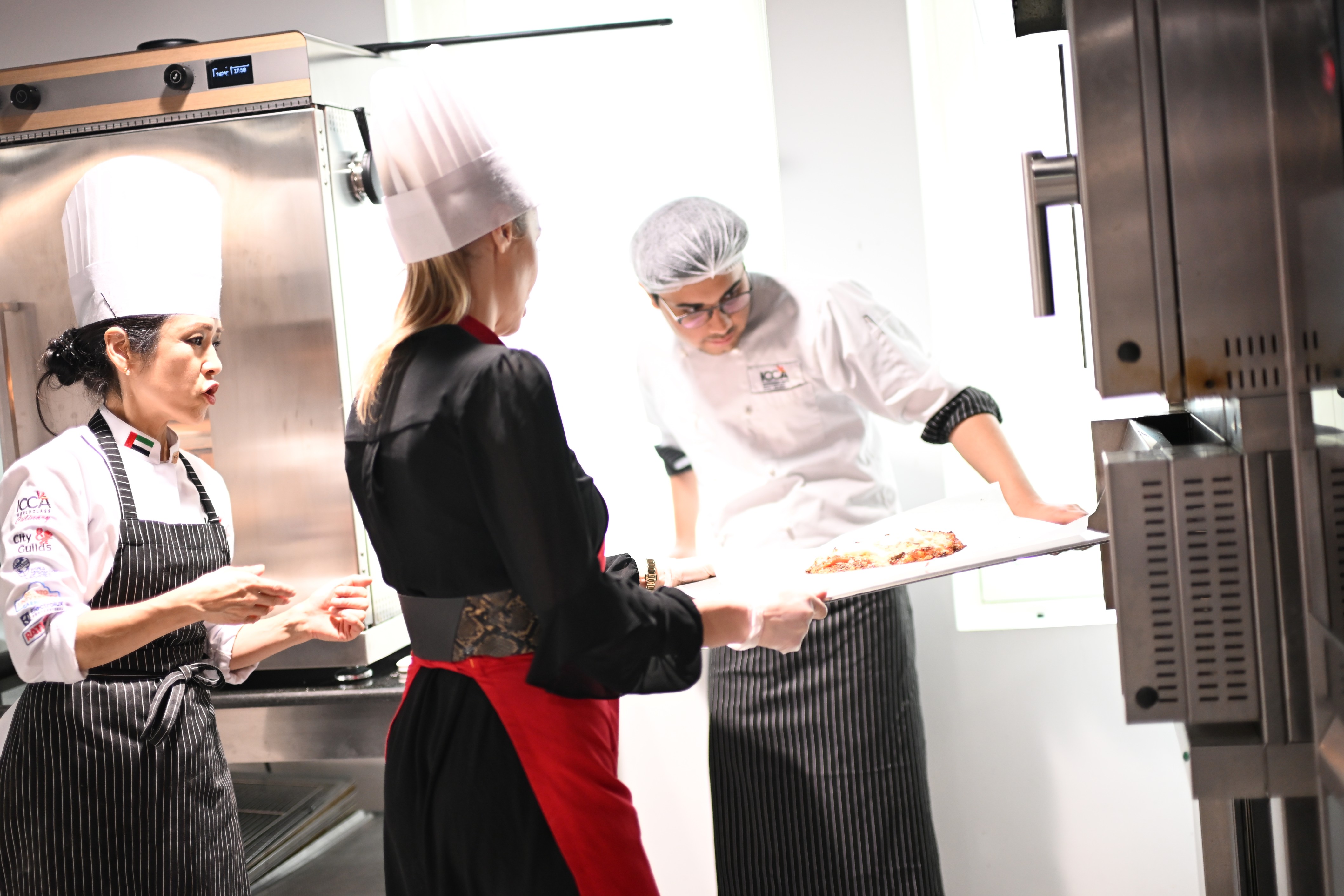
Baking in your home kitchen is freeing: you can experiment, taste as you go, and learn from small mistakes. In contrast, professional baking demands consistency—every loaf, cake, or pastry should meet the same standard regardless of who’s baking. Professional bakers rely on commercial ovens, dough sheeters, proofing cabinets, and infinitely precise scales. Ingredient quality is superior: high-gluten flours, European-style butter, and premium chocolate. Techniques like lamination for croissants or large-batch fermentation require specialized training. Meanwhile, production scale matters—batch after batch must turn out identical. This is the world of professional baking.
Fundamental Baking Techniques Every Professional Baker Should Know
Professional bakers master essential techniques:
- Creaming, folding, and kneading: Understanding when to gently fold batter or aggressively knead dough is critical.
- Fermentation & proofing: Timing and temperature control ensure consistent rise and texture.
- Lamination: Creating croissants or puff pastry requires precision in butter layering and dough rolling.
- Oven temperature mastery: A slight difference in oven heat or steam can make or break your bake.
These advanced techniques distinguish professionals from enthusiastic home bakers.
The Science Behind Baking
Baking is more than just mixing ingredients—it's a science that involves understanding how those ingredients react with each other. Gluten, for example, forms when you mix flour and water, giving bread its shape and chewiness. Yeast is another key player—it feeds on sugar and produces gas, which makes dough rise and gives it a nice, airy texture.
When baked, heat causes two important changes. The first is the Maillard reaction, which is what gives bread and pastries their golden-brown crust and rich flavor. The second is caramelization, where sugars melt and add sweetness and color.
All of these reactions—gluten development, fermentation, browning—depend on things like temperature, moisture, and the balance of ingredients. That’s why professional bakers pay close attention to every detail. Understanding the science helps them bake the same great product every time.
Baking Tools & Equipment Used by Professionals
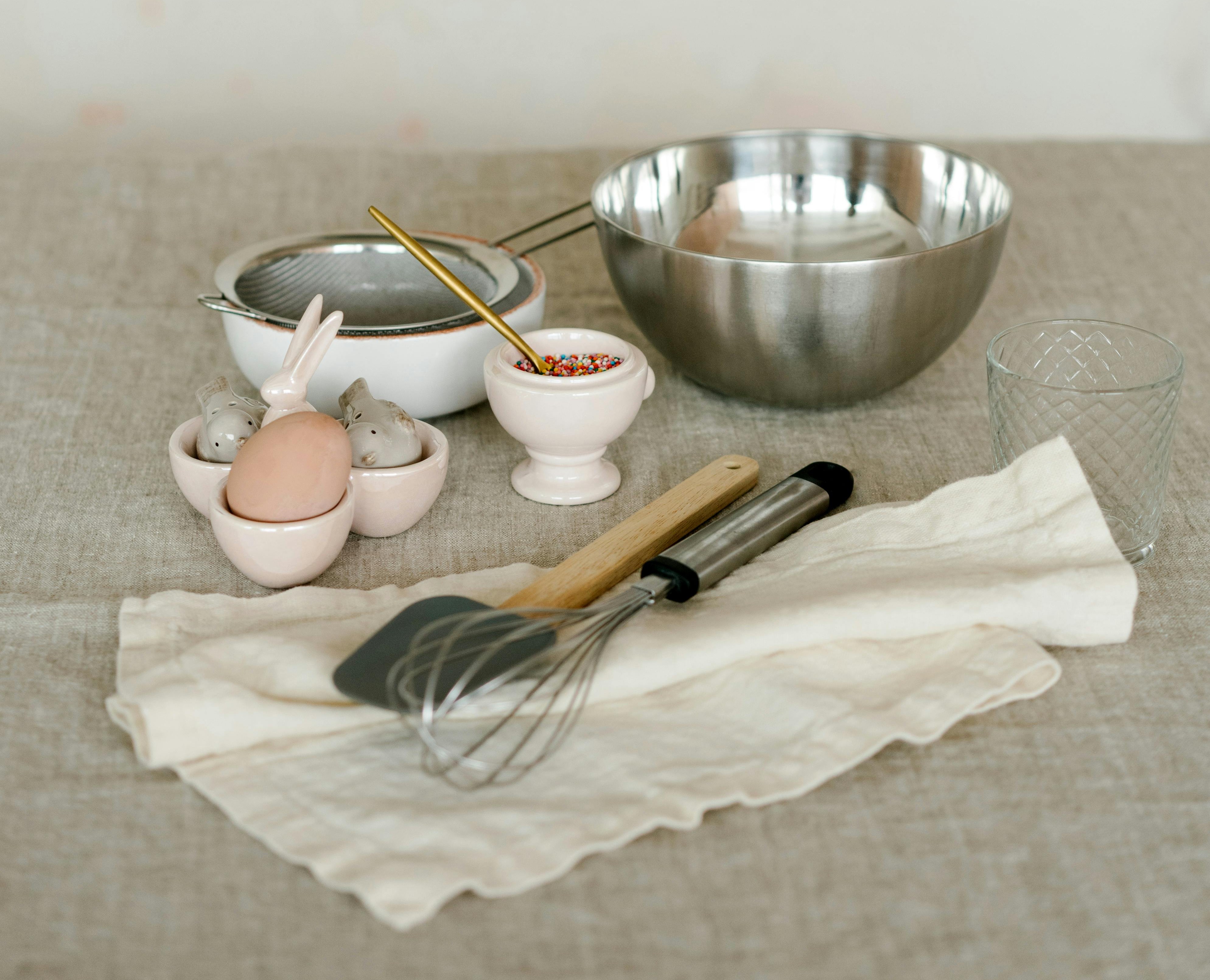
In a commercial bakery, tools are built for precision and volume. Stand mixers handle large dough loads, proofing cabinets offer controlled temperatures, and convection or deck ovens with steam injection allow consistent baking across multiple racks. These differ from home equipment not just in size, but in the ability to regulate exact temperature, humidity, and airflow. Brands like Hobart for mixers, Rondo for sheeting, and Rational for ovens are staples in professional bakeries. These brands help ensure every product—whether bread, pastry, or cake—meets exacting quality standards.
Understanding Ingredients in Professional Baking
Professional bakers understand that ingredients are not interchangeable. They choose bread flour for gluten strength, pastry flour for tenderness, and European-style butter for flavor and texture. Cocoa powders, chocolates, and sugars are carefully selected for melting behavior and sweetness balance. Leaveners such as baking powder, baking soda, and yeast are weighed precisely to maintain consistent rise and crumb structure. Knowing how ingredients interact lets professional bakers customize recipes with confidence and precision.
Advanced Baking Techniques
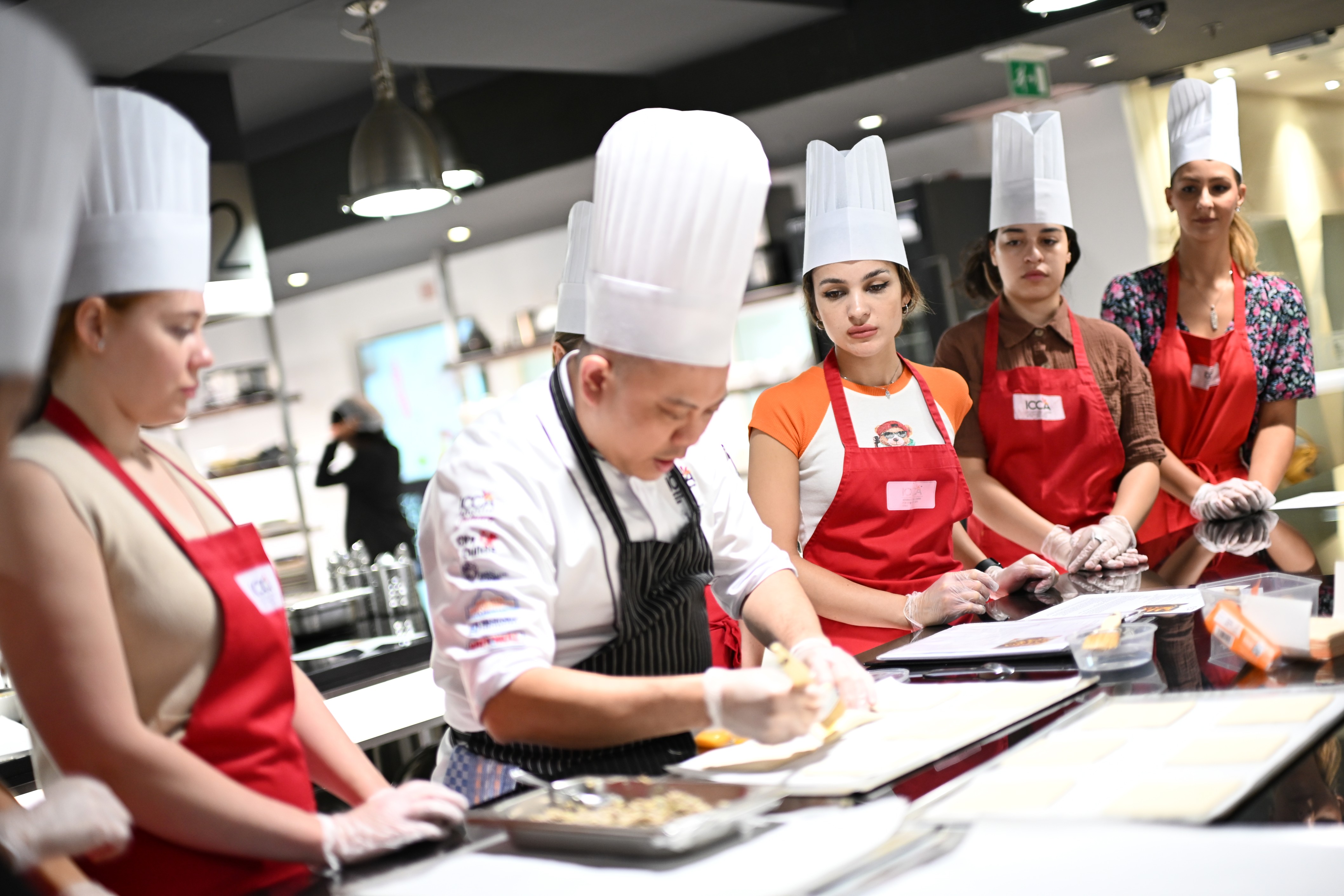
Skillful professional bakers elevate their craft with advanced techniques: precise temperature control during proofing, managing water activity to extend shelf life without compromising texture, and mastering decoration tools. Techniques like tempering chocolate, piping sugar work, or finishing cakes with glazes and buttercreams define high-level bakery artistry. These refined skills are what make professional baked goods stand out—not just for taste, but also for aesthetics.
Training & Certifications for Professional Baking
If you're serious about turning your love for baking into a career, the best place to start is with proper training. Across the UAE and internationally, culinary institutes offer everything from pastry diplomas to advanced professional baking certifications. These programs go beyond recipes—they teach the science of ingredients, the theory behind techniques, and how to apply both in real kitchen settings.
Hands-on experience, whether through apprenticeships or working in actual bakery kitchens, is just as valuable. And for those who need flexibility, online masterclasses taught by industry experts can also build your skillset.
If you're based in the UAE, ICCA Dubai is a top choice. The professional baking courses combine classroom learning with real-world practice. With expert instructors and state-of-the-art facilities, ICCA Dubai helps you develop both the technical and creative skills needed to thrive in the industry. Whether you’re starting from scratch or refining your craft, it’s a smart step toward becoming a confident, skilled professional baker.
Career Pathways in Baking
Professional baking opens doors to diverse careers: head baker at a patisserie, pastry chef in a luxury hotel, artisan bread maker, or running your own bakery brand. Specialties such as sugar art, gluten-free baking, or vegan pastries allow bakers to define their niche. Many bakers begin at the bench and progress into leadership roles, product development, or business ownership built around their craft.
How to Start Your Own Baking Business
Starting a bakery in the UAE requires careful planning: registering the business, securing food safety licenses, calculating ingredient and equipment costs, and determining pricing strategies. Marketing is key—visually appealing products on social media, positive reviews from food bloggers, and word-of-mouth from satisfied customers build reputation. Managing logistics—from ingredient sourcing to production scheduling and minimizing waste—is essential for profitability and growth.
Understanding Profitability in Baking
Not all baked goods yield high profits. Items like artisanal sourdough or specialty pastries tend to offer better margins. Successful professionals track food cost vs. selling price for each product, control wastage, and source ingredients efficiently. Seasonal menus or limited-edition items can justify premium pricing. A focused understanding of costing and yields ensures sustainable bakery operations.
Baking for Special Dietary Needs
Modern customers often demand dietary adaptations. Professional bakers must master gluten-free baking using almond flour, rice flour, or specialty blends and vegan alternatives using aquafaba or plant-based butters and milks. Keto-friendly sweets using almond or coconut flours meet niche demand. Balancing texture, flavor, and dietary restrictions positions bakers to serve a wider audience.
How to Stay Updated with Baking Trends
The baking industry in 2025 is driven by innovation—AI-assisted ovens that regulate baking cycles, healthier ingredient trends like ancient grain flours and reduced sugar, and bakery items designed to look stunning in social media feeds. Professionals attend trade shows, maintain industry memberships, and experiment with flavor pairings and protein-fortified or plant-based product lines. Continuous learning keeps bakery offerings fresh and competitive.
Common Mistakes in Professional Baking & How to Avoid Them
Here are some frequent slip-ups even skilled bakers can make:
- Overmixing or undermixing the dough
- Wrong oven temperatures
- Substituting ingredients without research
- Skipping proofing or resting times
- Measuring by eye instead of using a scale
These small mistakes can lead to big problems—like dense cakes, uneven texture, or flat bread. Always follow your recipe closely, measure carefully, preheat your oven, and avoid making swaps unless you’re sure they’ll work. A little extra care goes a long way in professional baking.
The Art & Science of Mastering Professional Baking
Becoming a professional baker isn’t just about following recipes—it’s about understanding techniques, mastering precision, and finding your creative rhythm. Whether you're mixing dough at 5 AM or decorating a flawless cake, every step blends science with a touch of art. The key is to keep practicing, stay curious, and never stop experimenting.
If you're ready to take your baking skills to the next level, consider enrolling at ICCA Dubai. The expert-led courses offer hands-on training in real kitchen settings, helping you grow from passionate baker to industry-ready professional. It’s the perfect place to turn your love for baking into a rewarding career.

